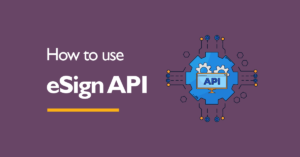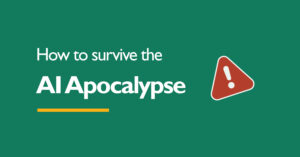Check out this jargon vomit:
“The umami-rich reduction, deglazed with a robust Bordeaux, enhances the mouthfeel of the protein, while the Maillard reaction ensures a perfectly caramelized crust. The sous-vide technique guarantees optimal tenderness, locking in the natural juices before finishing with a reverse sear.”
Unless you’re a professional chef or a serious foodie, that might sound like a science experiment rather than a food review.
You probably get the gist (something delicious is cooking), but the jargon makes it hard to follow.
And jargon like this is everywhere: in tech, business, healthcare, and even everyday conversations.
If people have to pause and decode every other sentence, they’ll abandon your content mid-way.
So, is jargon killing your content? Let’s find out.
What Is Jargon?
Jargon refers to industry-specific words or phrases professionals use to communicate efficiently within their field.
It’s like shorthand, perfectly clear to those in the know but often confusing to outsiders, just like the example in the introduction.
Think about a doctor discussing “myocardial infarction” instead of saying “heart attack.” While precise, it can feel like a foreign language to anyone unfamiliar with the terminology.
Now, make no mistake: not all technical language is jargon. Some terms are necessary for clarity.
But when every sentence feels like it requires a codebook to decipher, that’s when communication breaks down.
Why Do People Use Jargon?
A few key reasons stand out:
1. As part of professional communication
When everyone in your professional ecosystem speaks or writes a certain way, you subconsciously absorb their language. Over time, industry-specific terms become second nature.
What seems like everyday vocabulary to an expert might be completely foreign to someone new to the topic.
Without realizing it, professionals often assume their audience understands these terms, even when that’s not the case.
2. To align with industry standards
Many industries have a structured way of communicating, often relying on specialized terms to ensure consistency.
Fields like law, medicine, finance, and tech use jargon not as a barrier but as a tool to establish a shared understanding among professionals.
This way, documents, reports, and discussions don’t get bogged down by misinterpretation.
Consider the finance industry: instead of saying, “The company made a lot of money,” reports use precise terms like “net profit,” “operating income,” or “revenue growth.”
These terms have standard definitions that investors, analysts, and regulatory bodies recognize and understand.
3. To provide a sense of belonging
Yes, jargon also promotes a sense of community and exclusivity among experts.
As creatures of habit, we naturally gravitate toward the familiar, especially in niche fields where we crave that sense of familiarity.
A fitness expert reading an article expects a breakdown of deadlift biomechanics. A basketball fan wants an analysis of a team’s pick-and-roll strategy. And a developer would appreciate a deep dive into optimizing API calls.
Essentially, we want content from people who “speak our language.” Like, skip the basic definitions we already know and get to the good stuff.
4. To show authority
Jargon can also serve as a status marker. Open any marketing article, and you’ll find buzzwords like ideate, ROI, sales funnel, bottom line, customer journey, etc.
Professionals expect this language because it reflects industry knowledge. Writing for an expert audience and using the right terms shows you understand the field.
In some cases, technical language positions you as more knowledgeable or authoritative, even when simpler terms would work just fine.
However, jargon isn’t always used for practical reasons. Sometimes, people use it to sound fancy, show off their vocabulary, or make something sound more impressive than it really is.
Disadvantages of Jargon-Ridden Content
At its best, jargon can streamline communication within a specific industry. But at its worst, it builds walls instead of bridges. Here’s why complex writing does more harm than good:
1. Confuses your audience
I detested watching the news when I was younger because of how “jargonized” it is.
I get that journalists and analysts have to sound professional, but half the time, it feels like they’re talking to each other rather than the people who actually need the information.
It’s almost as if only those fluent in technical lingo can access the full story while the layperson is left in the dark.
This also happens in marketing content. While “Leverage synergistic solutions to optimize cross-functional alignment” may sound impressive, does it actually leave readers with a clear takeaway? I don’t think so.
The goal of content is to communicate, not impress, and jargon does the exact opposite.
2. Prevents meaningful connection
Beyond clarity, complicated writing sucks the life out of your content. It strips away any sense of warmth and personality, making your message feel robotic and distant.
Most online tech articles read like a cryptic exchange between early versions of Siri and Alexa—stiff, unnatural, and painfully devoid of personality.
Instead of feeling informed, readers feel like intruders in a conversation they weren’t invited to.
And here’s the thing: connection matters. If your audience can’t see the human behind your words, they’re less likely to stick around, return for more content, or take action (whether subscribing, purchasing, or sharing your work).
3. Affects search traffic
Google prioritizes helpful, relevant, and people-first content. (At least, this was the claim before the company’s recent obsession with AI).
If your writing is overloaded with technical terms that no one actually searches for, you’re cheating yourself out of potential traffic.
When was the last time you Googled: “optimizing cross-functional paradigm shifts for scalable synergy”?
Probably never.
A more realistic search term would be “how to improve teamwork”.
Jargon-filled content fails at SEO because it doesn’t match how users search. Engines, like ChatGPT, Bing, and Google, thrive on understanding user intent, and most users aren’t typing in complex, industry-insider lingo.
So, if your content reads like an internal corporate memo instead of a helpful guide, it’s a turn-off for both readers and search engines.
4. Weakens brand trust
Earlier, I mentioned that jargon can create a sense of exclusivity among industry insiders. But, for newcomers, it’s alienating.
Instead of feeling welcomed, they wonder, “Is this company trying to impress me or confuse me?”
Worse, they might assume you’re intentionally vague to gloss over a lack of real value.
Whatever conclusion they draw, the result is the same—they’d tune out and move on.
So, your language can influence the level of trust customers place in your brand.
If your content feels distant, complicated, or impersonal, it weakens your credibility. And in a world where trust is everything, that’s the last thing you want.
5. Reduces sharing potential
Everyone loves a good read—something engaging, clear, and valuable. People naturally share content when it resonates with them, provides useful insights, or sparks an emotional reaction.
As more people share your content, it reaches a wider audience, driving traffic to your website and increasing the potential for conversions and business growth.
However, if your content is difficult to understand, readers are less likely to engage with it, let alone share it. This limits your ability to attract new eyeballs and generate meaningful engagement.
How to Spot Jargon in Your Writing
Here are some novel ways to escape the clutches of jargon without falling into the usual “read it out loud” or “simplify your words” trap:
Reverse engineer your acronyms
Acronyms are useful, but they often hide lazy writing. Using them too much assumes your audience already knows what they mean—and that’s a mistake.
Try this:
- First, write out the acronym in full.
- Then, rewrite the sentence without the acronym.
- Now, check if the sentence still reads smoothly and makes sense.
An awkward or unclear expanded version signals that you’re using the acronym as a crutch rather than explaining the point properly.
The goal isn’t to strip out every acronym but to ensure your writing is clear and accessible. When necessary, introduce the full term first, then use the acronym or abbreviation after.
For example, instead of writing, “Our CMS is user-friendly. The CMS integrates easily,” try “Our content management system (CMS) is user-friendly. This system integrates easily.” Expanding it first clarifies the sentence while keeping the acronym for later use.
Share your work with colleagues (or a willing friend)
When you’re deep in your industry, jargon can slip into your writing without realizing it.
To test this, give your work to a colleague from another department, a friend outside your field, or even someone with no industry background at all. Ask them to rewrite or summarize it in their own words.
If they misunderstand key details or struggle to explain them, your original wording is likely too murky for your target audience.
Try to Google it
Not sure if a phrase is jargon? Do a quick Google search.
If the top search results are filled with vague corporate buzzwords instead of clear explanations, it’s likely jargon. Meaningful, straightforward terms have well-defined answers online.
For example, compare searching “email automation” versus “omnichannel engagement strategy.” The first one brings up clear guides on how to set up automated emails. The second? Likely a mix of high-level marketing fluff with no clear how-to.
If your term sends people down a rabbit hole of vague definitions, consider rewriting it.
Check for meaningless fancy words and phrases
Jargon thrives on words that sound impressive but lack real substance. These “fancy” words and phrases often create an illusion of expertise while adding little value to your writing.
To spot jargon, ask yourself:
- Does this phrase communicate something specific?
- Could I say this in simpler, more concrete terms?
- Would a reader outside my industry understand this?
- Am I using words to fill space rather than add meaning?
Cutting out meaningless fancy words makes your writing clearer, more engaging, and easier to understand.
Use online tools
Online writing tools can help simplify your content by highlighting complex words, improving readability, and suggesting clearer alternatives.
- Hemingway Editor flags dense sentences, adverbs, and passive voice, making text more concise.
- Grammarly detects overly technical words and suggests simpler alternatives.
- WordTune rewrites sentences for clarity and readability.
- Readable assigns readability scores to ensure accessibility.
- AI tools like ChatGPT and Undetectable AI can help simplify complex sentences. You can paste a paragraph and ask for a more reader-friendly version.
Each tool has its strengths, so combining them can help you catch different types of jargon to make your content more accessible.

Check out some of the most essential tools that can streamline processes and make your writing stand out.
When (and Where) Jargon is Okay to Use?
With two opposing views on jargon, should you avoid it altogether?
Not necessarily. Jargon itself isn’t the problem—how and where you use it makes the difference.
Depending on the industry, jargon can drive or hurt your message.
Jargon works well if you’re writing for a niche audience (one that lives and breathes the subject).
For example, engineers, doctors, scientists, and finance professionals rely on precise terms to communicate efficiently.
Watering down your language can backfire in these fields, positioning you as a novice who lacks a full grasp of the subject.
On the other hand, if your audience includes newcomers, potential customers, or a general audience, avoid the technicalities and simplify your work.
When people have to stop and Google every other word, they’re more likely to bounce than engage. So, prioritize clarity and offer a quick definition if you must use a technical term.
The trick is knowing when to “geek out” and when to keep it simple. And it all comes down to learning and understanding your audience.
Make Your Content Clear and Jargon-Free With RoninPoint
Jargon might make you sound like an expert, but what’s the point if your audience can’t understand you?
Readers shouldn’t have to work twice as hard to grasp your message. Instead, your words should guide them effortlessly, making even complex ideas sound simple.
At RoninPoint, we specialize in turning industry-heavy language into clear, engaging content that attracts and connects with visitors.
Whether you’re explaining technical processes, breaking down business strategies, or crafting compelling narratives, we help you say it in a way that sticks. Contact us today and enjoy excellence in simplicity.
Who wrote this?
Joanna is a versatile content writer with a knack for creating helpful content that resonates with others. When she’s not typing away, she finds solace in quiet moments, music, and cinematography videos. She believes she has an untapped well of creativity inside her and she’s willing to dig deep to fetch it out.
- Joanna Alihttps://roninpoint.com/author/joanna/
- Joanna Alihttps://roninpoint.com/author/joanna/
- Joanna Alihttps://roninpoint.com/author/joanna/
- Joanna Alihttps://roninpoint.com/author/joanna/April 20, 2025









